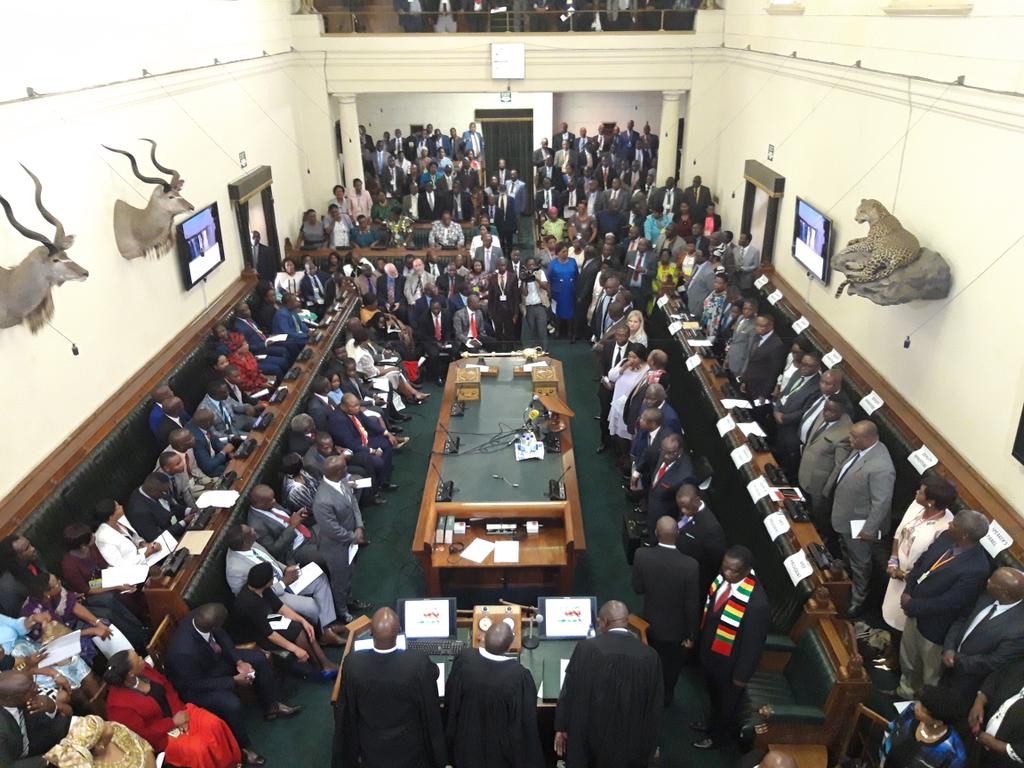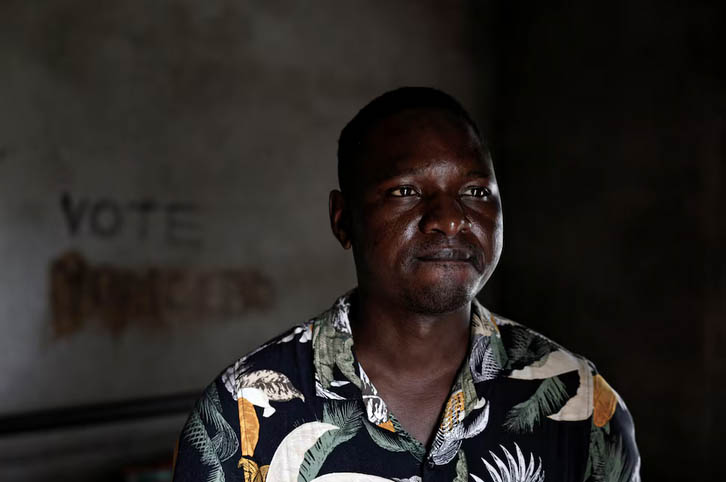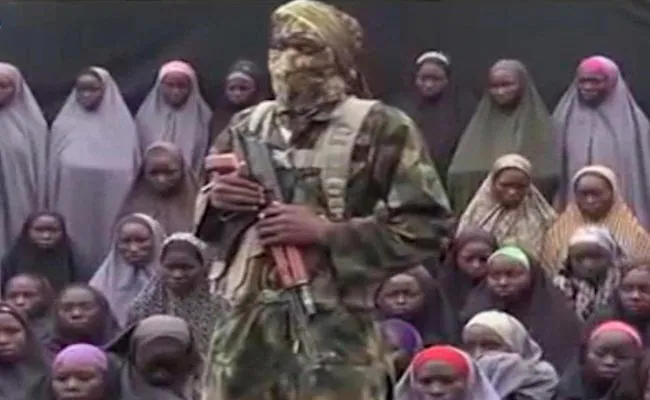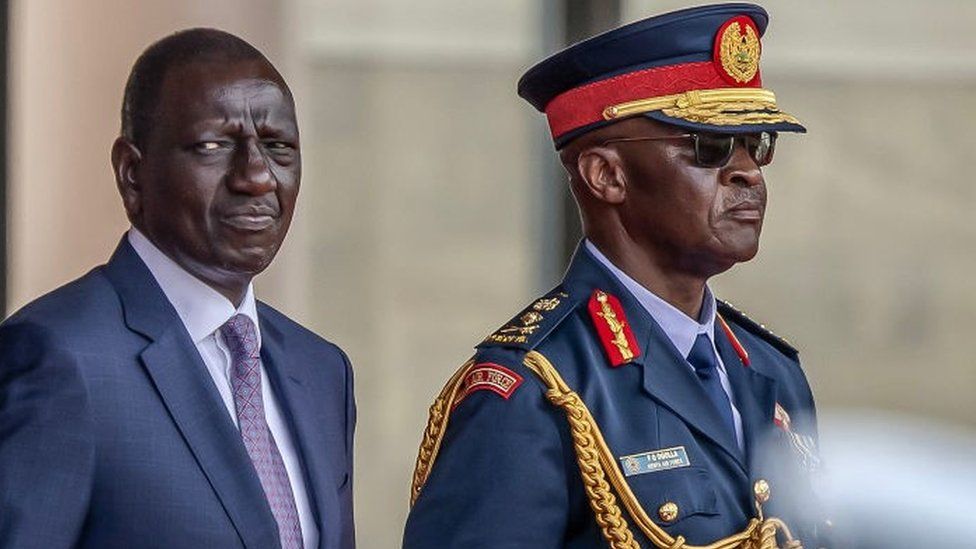THE Constitution of Zimbabwe like any other important document made by men, for men, must at appropriate times be revisited to test and ascertain as to whether or not it remains appropriate in view of the questions and circumstances of the day.
The political and legal question of the day is: Is it rational and legally correct for the Constitution to appropriate to political parties a power to recall its Member in Parliament, who was voted for by people of various and no political party?
In seeking to rationally answer to the above question, one has to consider the underpinning nature and character of the legislature in Zimbabwe. This legislative character, is well captured in section 117 of the Constitution. I reproduce the entirety of this section herein below:
117 Nature and extent of legislative authority
The legislative authority of Zimbabwe is derived from the people and is vested in and exercised in accordance with this Constitution by the Legislature.
The legislative authority confers on the legislature the power –
to amend this Constitution in accordance with section 328;
to make laws for the peace, order and good governance of Zimbabwe;
And
to confer subordinate legislative powers upon another body or authority in accordance with section 134.
The point of no denial, is that legislative authority is derived from the people, the very masses. Those that enter Parliament, do so on behalf of no other entity other than the people who voted for them. In short Parliamentarians act as agents of the people, which people are the principals at all material times. In terms of section 117(1) as seen supra, the people are not given a political character. That is to say, legislative authority is derived from the people, and not from the people of this and or that other political party. A member of the legislature must rationally and legally serve at the interest and mercy of the people without politically characterizing these people. This in my considered view, ought to be the accepted standard and thinking.
In terms of section 129(1) (k), political parties and not the people have an unguided discretion to recall a Member of Parliament mandated by the people, without even the slightest consideration to the people’s views, which people are the principal and source of legislative authority. Section 129(1) (k) states as follows:
129 Tenure of seat of Member of Parliament
(1) The seat of a Member of Parliament becomes vacant –
(k) If the Member has ceased to belong to the political party of which he or she was a member when elected to Parliament and the political party concerned, by written notice to the Speaker or the President of Senate, as the case may be, has declared that the member has ceased to belong to it;
The Zimbabwean Parliament has now had its share of section 129(1) (k). This section, if not arrested now threatens to be the core business of Parliament, and the whole nation at large. This article desires to stir up debate on the Parliamentary recalling clause, in so doing, I will arrive at the following conclusions;
That the recalling clause negates the supremacy of the people in legislative authority. That by so doing, it conflicts with the essential features of the doctrine of Constitutional law.
That the political party, which entity is bestowed with recalling powers, is not the only party prominent in the voting contract, if at all, the political party is a minor player.
That the recalling clause, exposes the state to unnecessary expenditure by way of funding for by – elections.
That the recalling clause in its present wording and legal clothing, is naked so as to lead to chaos and absurdity in implementation.
In Indian jurisprudence, there is a controversial, but rational principle of Constitutional interpretation known as the essential features’ doctrine. In simple terms, this principle gives life to the fact that provisions of a Constitution are not equal .It gives space to test provisions of a Constitution with each other, with a view of preserving the foundational and essential features of the Constitution. In the present context , the provisions that are to be subjected to this essential features test are section 117(1) and section 129(1) (k) of the Constitution. It ought to be appreciated that legislative authority is the foundation of our Parliament and its processes. Section 117 (1) is clear that whatever Parliamentary process, office and mechanisms, all such are to further the will of we the people. The people confer legislative authority on Parliamentarians through a voting process, in exercise of their right in terms of section 67 of the Constitution. Section 129(1) (k) gives power to a political party outside the
we the people concept to recall a Parliamentarian who was voted for under their party. I respectfully hold the view that the role and place of the people must be indispensable on issues as pertaining to election, functions and expiry of the mandate bestowed by them collectively on a Member of Parliament. That the essential feature of our legislative character is that the people govern through agents, which agents are Parliamentarians. In this thought process, I find section 129(1) (k) to be negating an essential feature of our Constitution so as to invite most appropriately a Parliamentary repeal.
Section 67 of the Constitution entails the process upon which the people bestow legislative authority on a would be Member of Parliament, it is through a vote. While section 67 provides for a right to join a political party, and contest under it, such a right is not mandatory. People join parties if they want to, and they contest under political parties merely by choice. The right to join a political party is an individual right, same goes for contesting under it. That is to say this is a right that is decided upon by one person as an individual. Professor Madhuku is a member of NCA as a consequence of his own personal decision. His relationship with his party, and how he contests under it, is his own personal affair. This is the reality.
The exercise of the right to vote in terms of section 67 (3) (a) is an individual affair, but the outcome of that process is collective. The outcome of an electoral process is collective. The collective nature of this outcome, is what gives rise to the we the people’ concept of Constitutional law. This collective character of an electoral outcome is what is referred to as the people in section 117(1). In short, the people collectively are the legislative authority. A Member of Parliament does not hold office as a result of his individual relationship with a political party, but as a result of a collective view of the people in his Constituency. The voting contract is thus between the people and the Member of Parliament. Whatever party he belongs to is another personal issue between him and that party.
There is no logic in section 129(1) (k) completely ignoring the legislative authority, and bestowing the people’s power to a political party. In Zimbabwe, our voting system though a mixture of various systems, does not directly lead an electorate to vote directly for a political party, which party then deploys Parliamentarians. For the purpose of voting, we vote for individuals, named individuals. In our electoral system, the people vote directly for a known Charlton Hwende, whatever party he belongs to. This is different from South African system. In the South African system, there is no voter who directly voted for a named Mbuyiseni Ndlozi to be in Parliament. People voted for a party, which party then deployed him.
In the circumstances, while the recalling clause may be rational in the South African context, it is not in our context. It does not matter how many other nations are in our predicament. We are an autonomous nation, and we cannot be held prisoner by a minor clause of our Constitution. If at all, this is a clause that we just inherited from the Lancaster House Constitution in its section 41 (1)(e).
Electoral results in this nation, provide primary evidence that electoral outcomes do not follow political party affiliation. There is no pattern at all that gives testimony to the fact that political parties of elected Parliamentarians have the people’s authority in some way or the other so as to recall an elected Member. In the disputed Presidential results, Mnangagwa narrowly beat Advocate Nelson Chamisa, yet in terms of Parliamentarians, Zanu PF has a two thirds majority. For the purpose of analysis, it would mean there is serious inter party, and non-party member criss crossing in voting patterns. No party owns the we the people. People own their voice as reflected by the outcomes of the elections. If at all the right of recall is necessary, it cannot rationally be bestowed on political parties.
Given the fact that the collective vote has no defined political character, a recall as envisaged by section 129(1) (k) of the Constitution negates the right to vote and be represented as applies to a citizen who does not belong to any specific political party. There are thousands of people who are neither members of MDC Alliance nor Zanu PF who voted for the recalled Member of Parliament. These people have nothing to, for and or against the prevailing political and legal squabbles.
A national election as conducted by (ZEC) is logistically and financially a mammoth task. Elections in Zimbabwe, and a number of other developing nations cannot be entirely accommodated in the national fiscal space. The occasion of an election is thus a heavy expenditure to the state. That is to say, it is a heavy expenditure to the tax payer. The tax payer is the people as envisaged by section 117(1) of the Constitution. The people suffer a direct expense in the holding of an election from a financial point of view. Political parties do not fund (ZEC) for the holding of elections. If at all the ‘people’ suffer a further expense in favor of political parties in Parliament in terms of the Political Parties Finance Act.
In reality people fund (ZEC) for elections, they vote at their own expense of travel and by section 129 (1)(k), political parties only come in to reverse the people’s choices, for their own internal party differences. Further to that the same political parties are funded from this same tax payer whose right they take away. The money disbursed in terms of the Political Parties Finance Act, is collectively deducted from the national purse, with no regard to the contributor’s political character. In the same way, it is impossible to politically characterize this money, it must be impossible to politically characterize the mandate of a voted Member of Parliament.
It defeats logic to allow a political party to unconditionally trigger a mammoth fiscal expenditure at the expense of the people, without the slightest consultation of such people. In terms of section 117 (2) (b), the legislature is given authority to make laws for the peace, order and good governance of Zimbabwe. A law that allows reckless expenditure does not promote good governance, and must attract a Parliamentary repeal.
While political parties and politicians are in the business of politics, the more than 10 million Zimbabweans including children must not be held hostage in an elective political ship battling a crumbling financial storm. The people do not benefit from Parliamentary recalls and the expensive by-elections that result. People are worried over rent, jobs and even still proper health facilities to deliver on the Covid-19 disaster.
Parliament is a big institution with a very important role in a nation. Parliament plays a pivotal role in ensuring checks and balances in the art of governance. In various portfolio committees, Parliamentarians question and shape the direction of this nation on behalf of the people. These Parliamentary portfolio committees are composed of Parliamentarians across the political divide. A good case in point, is the Parliamentary legal committee as provided for under section 152. A recall in terms of section 129(1) (k) merely requires the Speaker to pronounce particular members duly recalled. It is in the context instant. The process does not care whatever role and report Honorable Biti was preparing on the finance committee. It does not care whether or not a member was in the middle of interviewing or examining GMB officials. It is insensitive to Parliament’s core business.
Further to that, the result of a recall in important terms is that it hampers Parliamentary business. There has to be reconstruction of committees and a slowing of process, and in some instances diminishing of Parliament’s intellectual capacities. As long as the Parliamentary recall clause remains, Parliamentary business is at the mercy of political parties. The ultimate loser, are the people which people have no say in the recall process.
Zimbabwe has one of the most politically accommodating Constitutions as regards to political party formation and regulation. In Zimbabwe, anyone can form their own political party, and gamble and clown on the political arena. Our section 67(2) (a) allows without any restrictions proliferation of parties. Further to that, our Constitution does not seem to guide the ideologies and internal processes of political parties . In Zimbabwean, one can even form a party for the purpose of achieving an ideology contrary to the Constitution. Section 67 (2) (d) actually in clear words states that one can participate in politics for whatever cause. In the context of our political experiences, I do not have qualms with the generous provisions.
The key issue that ought to be grasped is that this lack of comprehensive guidelines, makes it difficult for public bodies to make decisions on issues stemming from political party businesses. The Speaker of Parliament and the courts of law will always be faced with contested Constitutions, resolutions, officials and congresses in matters relating to political parties. The closest animal to a political party which is regulated is a trade union and even under strict regulation trade unions themselves own court space with contested congresses, Constitutions and resolutions.
The will of the people as expressed in a vote, cannot safely be surrendered into the hands of political parties, as regards the recalling of an elected official in terms of section 129(1) (k) of the Constitution. The Speaker of Parliament will never know what happened at the MDC- T of Khupe’s Congress in Bulawayo. He can only play guess work as and when he is confronted by conflicting letters of recall.
The Republic of Ghana has a recall clause in terms of its section 97 (1) (g) of its Constitution. Unlike Zimbabwe, this huge responsibility bestowed on political parties unfolds within the context of adequately regulated political parties. The Constitution of Ghana in section 55 outlines highly onerous regulations to political parties, and political party formation. In terms of this section, parties have a duty to practice democracy in their internal processes as per section 55 (5) of the national Constitution. Parties apart from adhering to their own Constitution, they must come clean on applicably provisions of the national Constitution. The Ghana Electoral Commission must be furnished with party Constitution and office bearers, including any subsequent changes, this is captured in section 55(7) of the national Constitution. The simple point is that these provisions ensure at the very list certainty of party activities and minimises chaos in the exercises of recalling powers.
Zimbabwe’s recalling clause, section 129 (1) (k), is a clause hanging in the air. It is a clause which in its current state is bound to continuously breed confusion and chaos. The Ghanaian recall clause is well dressed legally, and is a better law for their context, though Zimbabwe must never improve its current clause in the Ghanaian model to avoid political party stifling by regulation. Zimbabwe just does not need to continue to be made prisoner by this naked clause.
The Constitution of Zimbabwe and its section 129(1) (k) was not written by God in two pieces of stone, and handed over to us. We collectively wrote our Constitution to try and achieve a collective good through it. It is not a sin to sacrifice on the altar of repeal, a clause that with time we have found to negate the essential features of the collective good.
Members of Parliament across the divide of politics must converge and repeal this clause, not only because it is bad at law, but even still to achieve self-preservation on their part. The masses, who themselves are the real power, and or ought to be the real power in the legislative agenda must reclaim unnecessarily lost space. Conversations on the repeal of this legislation must continue, and nothing stops like-minded individuals from approaching Parliament by way of a petition to seek to cause a repeal of this clause.
Ephraim Ndlovu is a partner at Mabundu and Ndlovu Law Chambers















